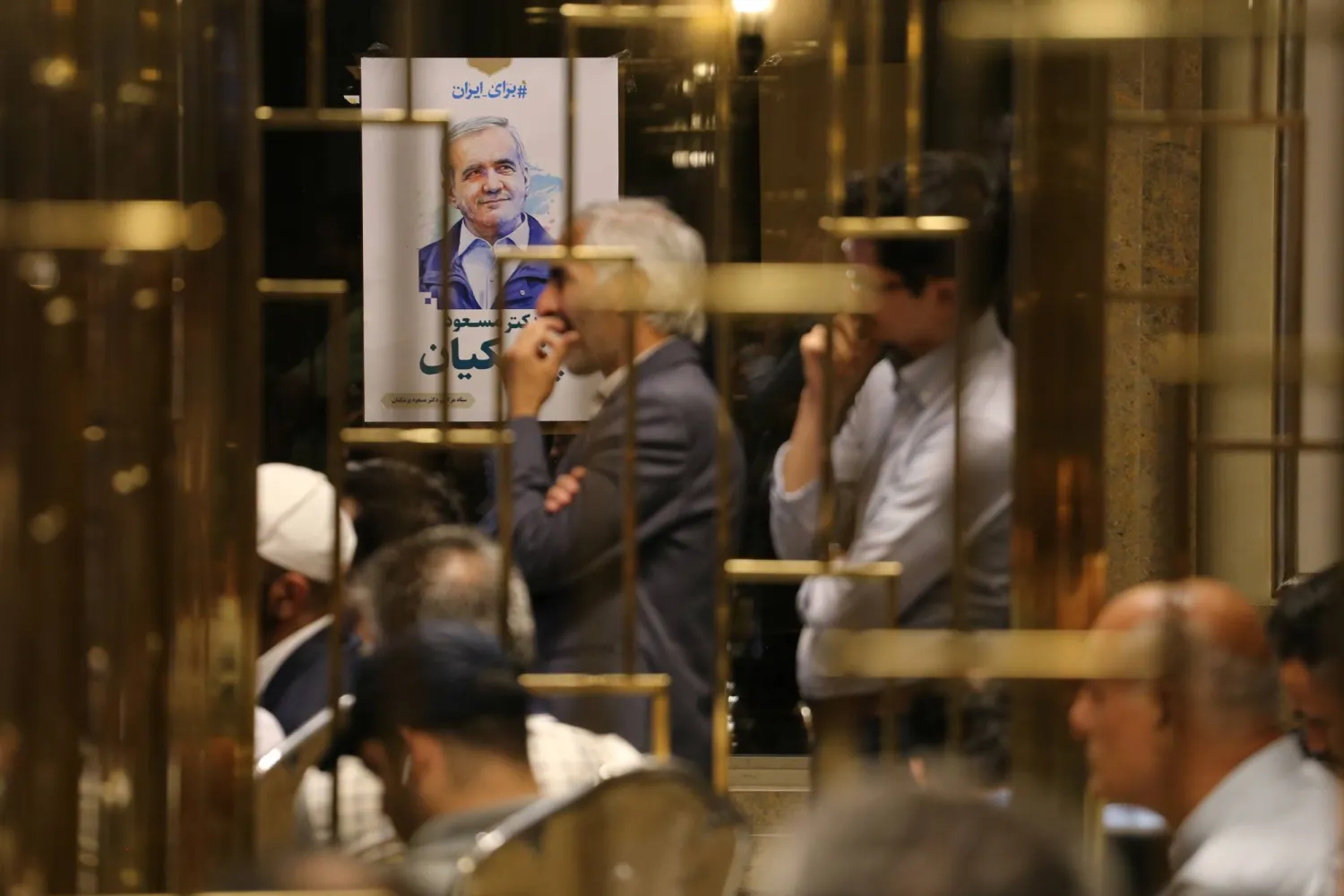Iran’s presidential candidates on Monday accused each other of having no solution for the country’s problems ahead of Friday's runoff election.
During a more than two-hour debate on public TV, reformist candidate Masoud Pezeshkian attacked his competitor, Saeed Jalili, a hard-line former nuclear negotiator, for his lack of experience, saying: “Tell me, what single company have you ever managed to make you capable of running the country?
Jalili defended himself highlighting his career and several positions held, including that of top nuclear negotiator.
Pezeshkian further questioned his opponent on what plans he would have for reaching a nuclear deal, with Jalili responding he would approach it "based on strength not weakness,” without providing details.
Jalili accused Pezeshkian of having no plans for managing the country, saying his presidency would drive the country to a “backward position,” as it was under relatively moderate former President Hassan Rouhani (2013-2021). Rouhani struck a nuclear deal with world powers that capped Iran's uranium enrichment in return to lifting sanctions but later, in 2018, President Trump pulled the US out from the landmark deal abruptly restoring harsh sanctions on Iran.
Jalili said that “with the support of people,” Iran would achieve an economic growth of 8% a year, a promise Pezeshkian mocked, saying authorities should be allowed to “execute him if he failed” to deliver on it.
Iran must implement "a dynamic foreign policy” if it wants to have a successful economy, Jalili said, adding that it should not be limited to those nations that it has a problem with — a reference to the US and the western world. Instead, he said, "Iran should look to the other 200 nations in the world where “foreign relations should be improved."
Pezeshkian said his foreign policy will be based on “engagement with the world" including engaging in "negotiations for lifting sanctions.”
Pezeshkian and Jalili also said the low turnout in the first round — the lowest-ever poll turnout in Iran’s history — should be probed.
“It is not acceptable that some 60 percent (of voters) did not cast a ballot,” said Pezeshkian.
The candidates will have their second and last debate Tuesday.
The electiosn are aimed at choosing a successor for the late President Ebrahim Raisi, who died last month in a helicopter crash.









